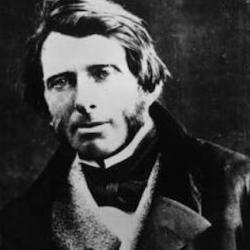Ingrid D. Rowland reviews several shows and books focusing on the paintings of Hieronymus Bosch (born Jheronimus van Aken), celebrating this the 500th anniversary of his birth. Rowland notes that “Bosch’s grandfather and grandmother enrolled as members of the Brotherhood of Our Lady, the local religious confraternity. Ever afterward, the brotherhood would provide their large extended family with spiritual solace, social contact, and artistic commissions.”
Bosch’s religious views are captured in his Wayfarer: “Most scholars interpret the wayfarer as an Everyman, making his way through life amid threats to his physical and spiritual safety. Only constant faith and vigilance will keep him on this treacherous road.” The message is stern: “earthly life is a time of trial, and only vigilance will ensure that death leads us, fellow wanderers, to salvation rather than an eternity in Hell.”
She also attempts to unravel the perplexing central panel of the “Garden of Earthly Delights” triptych. On one side is the garden of Eden, unusual for its depiction of unfallen nature: “His captivating drawing of an owl’s nest shows a mother owl feeding her fledgling in full recognition that the food she brings is living prey; but how can we be sure that his accurate, unblinking portrayal of this reality implies a negative judgment of what the Bible has proclaimed as good? The owls and an infinitesimal spider dangling from a branch are simply carrying out their duties as owls and spiders.” On the other side is a Dantesque vision of hell.
In the central panel, “Naked people, male and female, black and white, cavort with birds and animals among succulent pastel plants, feeding on ripe, oversized fruits. Around a pool full of naked bathing beauties, a troop of young men circles, each riding an emphatically masculine beast.” Rowland thinks this reflects the world that might have been if Adam had never fallen, and thus “brings us back to the old Christian theme of the felix culpa: the conviction that if Adam had not eaten the apple, humanity would never have been redeemed by Jesus Christ. Painful as its consequences may have been, Adam’s mistake, in this view, provided the occasion for God to display the immensity of his mercy.” Bosch’s painting confirms our suspicion of “unbounded bliss.”











